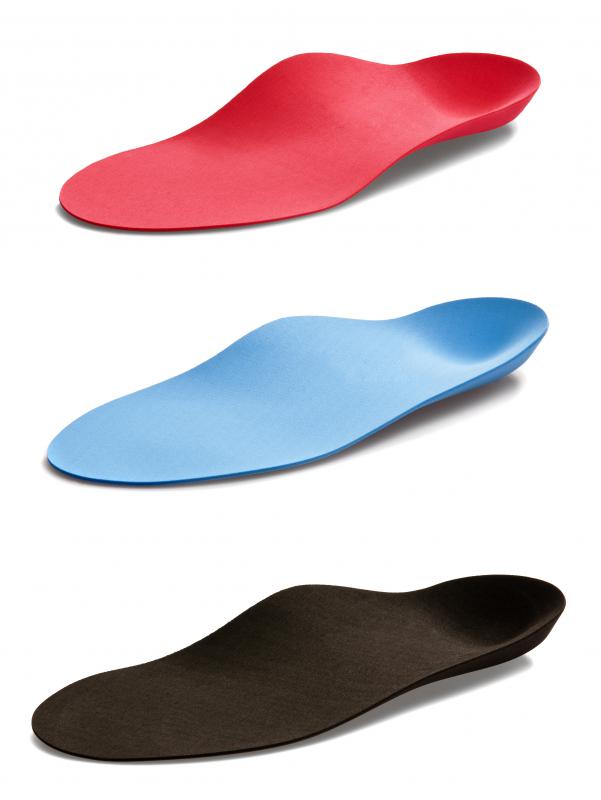At WiseGEEK, we're committed to delivering accurate, trustworthy information. Our expert-authored content is rigorously fact-checked and sourced from credible authorities. Discover how we uphold the highest standards in providing you with reliable knowledge.
What are Trail Running Shoes?
Unlike regular running shoes designed for smooth pavement or dirt tracks, trail running shoes are designed for running on trails, rough terrain, and inclement conditions. Trail running shoes are often built with thicker soles, sturdier uppers, and in some cases, ankle support. Trail running shoes feature more traction on the soles to accommodate a range of running surfaces, such as dirt, mud, rocks, roots, and so on.
When choosing a trail running shoe for training or competition, it is important to consider durability, breathability, traction, and support. Just like other types of running shoes, trail running shoes should fit snugly and comfortably, and they must offer sufficient support in the arch of the foot. It is important to choose a trail running shoe with an aggressive sole, one that will be able to handle a variety of terrains and weather conditions. However, it is also important to consider weight; a light running shoe will be more comfortable and efficient in the long run, so a runner must be sure to find a balance between features and weight.

Another feature that is a necessity for any pair of trail running shoes is waterproof material. When running on trails, a runner is almost certain to encounter moisture at some point. When a foot gets wet, blisters are more likely to develop, causing severe discomfort. Such discomfort may put an end to a run, so choosing a waterproof pair of trail running shoes will help the runner avoid discomfort. Some trail running shoes offer materials that are both waterproof and breathable — that is, the material allows perspiration to leave the shoe, keeping the foot dry and comfortable, while simultaneously repelling water from the outside of the shoe.

Trail running shoes generally have thicker soles than regular running shoes as well. Since the impacts the sole of a running shoe will take are not uniform, as they would be on pavement or flatter surfaces, a thicker sole is necessary to protect the foot from sharp edges and uneven surfaces. Many trail shoe soles feature mud-shedding channels or grooves to keep mud from caking to the bottom of the shoe, thereby affecting traction. Further, the uppers of a trail shoe will be more durable, as they are likely to take impacts, scrapes, and other types of wear from dirt, mud, rocks, and other materials. A trail shoe should be durable enough to withstand all these challenges time and time again for longevity.
AS FEATURED ON:
AS FEATURED ON:















Discussion Comments
Don't buy cheap running shoes or cheap hiking shoes if you are going to be running and walking on tough trails. You might be surprised how much more of a beating your shoes will take on back trails as compared to smooth paved streets or running tracks. On trails, the rocks and the slopes and the uneven ground moves your feet in different directions at the same time, stressing your shoes.
I think running trail shoes are going to be worth the price if you plan on spending much time on the trails, even though they can be expensive.
@Sporkasia - Running shoes in general are usually lighter than other athletic shoes, so you are right that they will probably be lighter than the trail running shoes. However, I tried on mountain running shoes in a store recently and even though they were well built up around the ankles and the soles were thicker, the shoes were still lighter than some of my tennis shoes and basketball shoes.
By the way, the mountain running shoes are the same as the trail running shoes. I only recently learned this.
I like to walk and run on the trails in the state park near my home when the weather is nice. I usually wear my regular running shoes, but a friend told me I should buy a pair of shoes made for running trails specifically.
One of my favorite things about my old running shoes is they are so light. Any extra weight can make a big difference when you are running or hiking long distances. And from reading this article I am a bit concerned that the trail running shoes with the thicker soles would be much heavier than the shoes I am accustomed to wearing.
Post your comments